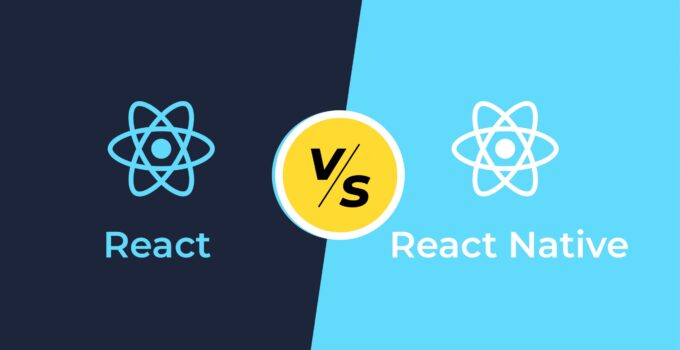Ever since the framework’s introduction, we hear a lot about building React Native apps and their benefits over native development.
But which one is really better? And how do you choose between native and react native app development services? Let’s find out together.
What is native app development?
Source: andromo.comNative application development is the traditional approach to development and implies building apps that are specifically designed and tailored to a particular platform, such as Android or iOS. There are many native apps out there, with popular examples including WhatsApp and Spotify.
Because native apps are able to take advantage of all the nuances, features, and capabilities of the platform on which they are created, they are believed to better engage users and help businesses achieve their goals faster, such as at emphasoft.com.
Native app development has many benefits:
- Having the most optimized app performance. Because native apps are designed for a certain platform, in the right hands they can have an unmatched performance that wows the client.
- User experience. Native apps offer a user experience that goes beyond building a tasteful design and allocating your logo to the right spots. These apps are very responsive to user input or output, and they feel more natural and intuitive within the platform they’re operating on.
- Complete access to the features of the device. Native apps have the benefit of being able to use the devices’ cameras, GPS, as well as access to API which all contribute to making the app more fun, feature-rich, and powerful.
But there are also downsides to this approach, such as:
- High cost of development. To build a native app, the project team needs to have specific skills, knowledge, and technology that is only applicable to the platform they’re working with. This means that you need to have a separate team for every platform that your app will be running on. And those teams will have to create basically the same application, just with different tools.
- Longer time to market. With each platform that you build an app for, you are adding months of work that delay the app release for you. Surely, it is possible to create an app for one platform, release it, and then start working on another one, but it’s not ideal if your customer base utilises all available mobile platforms. Plus, there is no guarantee that you’ll be able to sync all teams to be finished at the same time.
- Complicated app maintenance. Tests for bugs and vulnerabilities together with regular maintenance and upgrades become a problem when you have multiple native apps. It takes more time, it’s more complex, and it’s easier to miss something.
What is app development with React Native?

Source: circleci.com
React Native is a mobile development framework that was released by Facebook (now Meta) in 2015.
It is designed to build cross-platform mobile applications by using JavaScript. The framework is open-source, and it’s quickly gained a substantial following and a fan base, despite it being relatively new.
As the company that created React Native, Facebook used it to build its main app, but also Facebook Ads, and Facebook Analytics. Other popular apps created with this framework are Walmart, Tesla, Pinterest, and Coinbase.
Unlike native app development, React Native allows developers to build hybrid apps that work on several platforms at once. It also uses a unique approach where it renders native components from the JavaScript code. This allows for achieving better results for the apps that are more powerful and native-like than their counterparts built with alternative cross-platform frameworks.
The key benefits of React Native include:
- Code once, run everywhere. Perhaps one of the key benefits of building your product with React Native is that it allows your developers to create the code just once and use it across several platforms. This helps avoid repetitive work.
- Lower project costs. When you only have one team that works on the app, your overall costs go way down compared to native development where every platform gets its own tech team.
- Faster time to market. With only one code to write, test, and debug, the development process becomes much quicker, and you can present the final product to the users sooner. Besides that, React Native supports features like hot reloading that make the development process more productive.
- Supported by tech giants. Facebook alone is an impressive supporter of the framework, but even without its creator React Native has secured a place for itself among the top hybrid development frameworks. It has huge community support, so whatever issue it might experience, there are many devoted tech specialists across the globe working on it at all times.
Of course, React Native is not perfect, although it has many upsides. Some of the cons that are associated with this framework include:
- Finding experienced React Native developers. Because it doesn’t follow the same logic as other cross-platform frameworks, and since it’s relatively young, you may have difficulties finding experienced React Native developers that fully understand its logic.
- Performance. Although React Native demonstrates impressive performance, it is still not native, so, by nature, it has weaknesses compared to native app development.
Native or React Native: what should you choose?

Source: ionic.io
As you may guess, there is no definitive answer to what approach you should take.
Native apps have their undeniable benefits, and you can give it a try if you are only targeting one platform. Also, if you must have access to the device capabilities that only native development can provide, then there is no dilemma for you at all.
But if you plan to work with multiple platforms and devices’ functionality is not a top priority, then React Native would be a better choice. You will be able to significantly cut down on development time and costs, and you will get a powerful, well-functioning mobile app at the end.
React native app development services with a software development company
React Native is capable of building unique, powerful mobile apps that meet the needs of small startups and established enterprises alike. But in order to make the most of the framework, you need to have a reliable team to help you bring your vision to life without compromising performance or functionality.
If you don’t have the relevant experience, you would benefit from partnering with a software development company. A professional team doesn’t need to be hired, onboarded, or trained to start the work on the project. There is a clear project management process in place that avoids all bottlenecks and delays to ensure the app is released on time and is bug-free.




